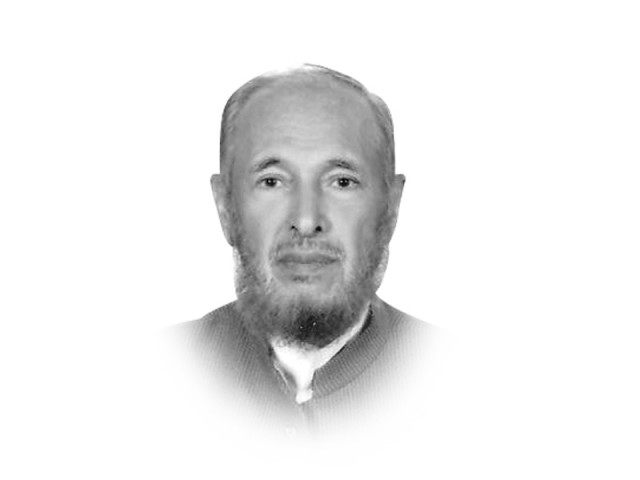Kabul-Taliban talks: a breakthrough
Having taken the plunge, the process must be carried through to completion

The writer has served as ambassador to Afghanistan and is a former interior secretary
The Afghan Taliban, with its leaders in Pakistan under intense pressure from the Pakistan government, appear to have softened their attitude towards Afghan government officials. There are reasons for this deviation from their initial stance, which was the refusal of entering into any form of dialogue or negotiations as long as there are foreign troops in Afghanistan. First, the Afghan Taliban leaders in Pakistan realised they must either agree to engage with the Kabul officials in some sort of publicised contact or look for other abodes. Then there was the Islamic State (IS) factor. The IS movement, although in its infancy in Afghanistan, was worrying the Afghan Taliban leadership. This is because any progress made by the IS would be at the expense of the Afghan Taliban. There was also the fatigue factor. The cadres of the Taliban have now been fighting in the face of heavy odds for 13 years, pitted against a most lethal and sophisticated military machine.

Prior to the Murree talks, the Afghan Taliban had distanced itself from the last two rounds of negotiations that were held in Norway and China, between Kabul and some leaders who claimed to represent the Taliban, asserting that the Taliban representatives participated in those talks in their individual capacity.
The participation of representatives from China and the US added more significance to the event, because the US is a party to the conflict and China has economic and strategic interests in Afghan peace and stability. China would wish to have a regime in Kabul that will not directly or covertly extend support to the insurgency in the Xinjiang province. In addition, Beijing would also want to protect its investments in copper mining in the province of Logar, as well as in oil and gas in northern Afghanistan. The participation of the two superpowers would ensure, to a degree, that any outcome of the peace process would be underwritten by the two major powers and that the parleys are not being conducted on any principle of exclusion.
Formidable obstacles remain in the path of peace-building. Rhetoric will have to give way to tangible actions that both sides would be required to take as the peace process advances. The Afghan Taliban insist that all their members in custody of the Americans, be released, including all those incarcerated in Guantanamo. They also demand the scrapping of the black list that bans the leaders of their movement. Both the UN list, as well as the one created by Washington, may be undone — as part of a possible compromise. The exit of all coalition forces is a constant, oft-repeated demand by the Afghan Taliban. In addition, the issue of the system of governance would have to be resolved if the talks were to make progress. Yet another demand is the vacation of all military bases currently in control of the US forces.
Since the peace process has been tacitly endorsed by the Afghan Taliban leadership, a milestone has been crossed and because there is a palpable eagerness to hold talks, the chances of achieving a measure of success are brighter than ever before.
The sticking point, besides the exit of all foreign forces, would be the system that would bring the Afghan Taliban into the mainstream, on terms and conditions that are mutually agreed upon. The Afghan Constitution and parliament are sacrosanct, but the unity and integrity of Afghanistan should be a higher priority. Pakistan must also begin to reappraise its policy and factor the objective realities into the formulation of a new approach. Two important points must not be lost sight of in putting into place a new vision on Afghanistan.
The emphasis on guaranteeing the ‘rights of Pakhtuns’ — a long-term favourite theme with Pakistanis — must be abandoned. No country has the right to advise, much less dictate, how Kabul should handle its ethnicities. Equally important, Pakistani policy must not be designed only to restrict India’s role in Afghanistan. A fundamentally negative approach not only limits Islamabad’s options, it also creates a terrible Afghan backlash in terms of acrimony, bordering on hostility. At the same time, Islamabad has to create a group or a cell that would advise on the formulation of policy on the most contentious issues or demands — some of which have been highlighted above.
Having taken the plunge, the process must be carried through to completion. Pakistan has acknowledged that it has the capacity to hold talks with the Afghan Taliban, implicitly accepting its links with the leadership of the movement. If the process fails to deliver, the implications will be horrendous — not only for Afghanistan, but also for the Pakistani government. Having officially acknowledged its contacts with the Taliban, it might face international criticism for failure to take action against it if the process collapses. Islamabad should keep its options open on enlarging, when necessary, the number of interlocutors, by including countries like Iran or Turkey so that the reconciliation process wins maximum support and endorsement from regional countries.
For the Afghan government, the Afghan Taliban and Islamabad, the stakes are high. Kabul shouldn’t expect to induct the Taliban into the mainstream merely by adjustments in the number of government positions offered to the group. A change of system is needed — one that reflects the aspirations of the majority of the population — aimed at creating new governance structures, not just shuffling across a few ministers. For sustainable peace in Afghanistan, all segments of the population and government, including the Taliban, President Ashraf Ghani and others, will have to be prepared to give sacrifices in order to achieve a historic victory that establishes a viable state, and begins to undertake the huge responsibility of reconstructing and rehabilitating a nation torn by war and conflict for over three decades.
Published in The Express Tribune, July 14th, 2015.
Like Opinion & Editorial on Facebook, follow @ETOpEd on Twitter to receive all updates on all our daily pieces.
















COMMENTS
Comments are moderated and generally will be posted if they are on-topic and not abusive.
For more information, please see our Comments FAQ